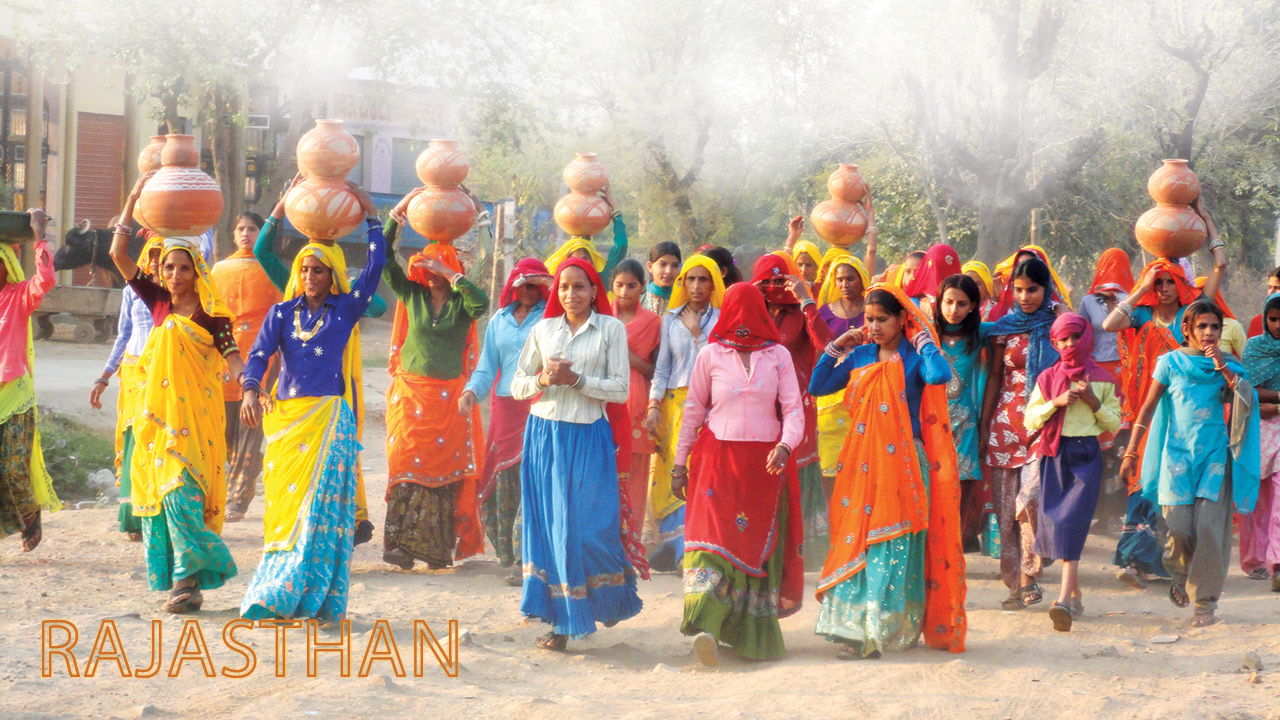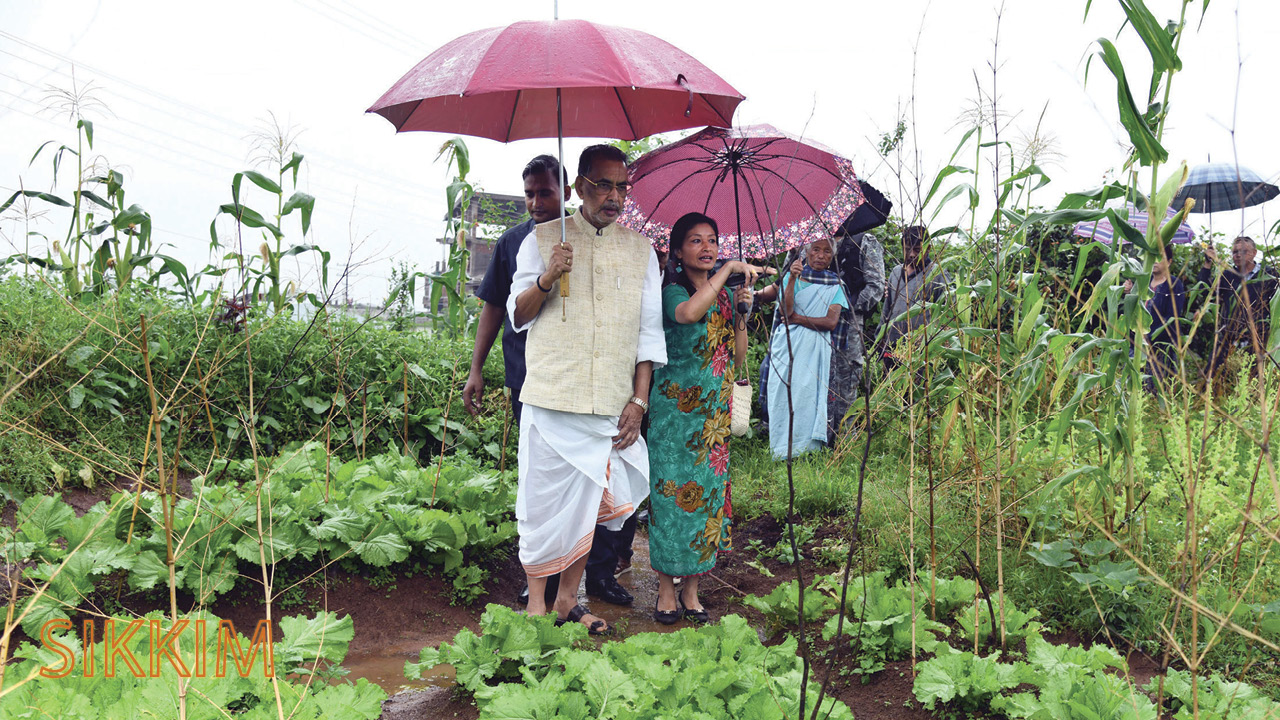Rajasthan ranks #13 in the SKOCH State of Governance Report 2024, reflecting steady and broad-based progress across key governance domains. With 14 well-performing projects evaluated—two of which were rated highly impactful—the state has shown clear intent in strengthening governance delivery and digital transformation.
Compared to peers like Madhya Pradesh, Chhattisgarh, and Uttar Pradesh, Rajasthan demonstrates greater thematic diversification and a deeper emphasis on administrative modernisation, women’s empowerment, and legal-tech integration.
A major driver of Rajasthan’s performance in 2024 is its impressive sectoral showing in General Administration (#2 nationally) and Police & Safety (#4, up from #8 last year).
These gains are not merely statistical—they are substantiated by robust case studies such as the eProsecution initiative, which has transformed legal case management under the Interoperable Criminal Justice System (ICJS). With over 6 lakh cases digitised in 2024 alone, Rajasthan has emerged as a national leader in prosecution efficiency and transparency.
In Police & Safety, the state has operationalised community-based innovations such as the Police Public Panchayat programme in border districts and Lady Patrol Teams in Udaipur. These initiatives have improved public trust, reduced gender-based crimes, and fostered community-police collaboration through regular village meetings and self-defense training workshops.
Additionally, Hello Mommies, a WhatsApp-based emergency response service for pregnant women, enhanced institutional responsiveness during the pandemic and continues to be a model for health-integrated public safety.
Rajasthan also ranks #6 nationally in Municipal Governance, with the Jaipur Smart City Integrated Command and Control Center (ICCC) standing out as a successful urban data integration initiative. With features like GPS-tracked waste collection, CCTV-enabled crime monitoring, smart parking, and rooftop solar revenue generation, ICCC showcases Rajasthan’s ability to embed smart technology into everyday urban governance.
In General Administration, the state’s Jan Aadhaar Yojana—a unified digital identity scheme covering over 50 million residents—has enabled efficient service delivery and leak-proof welfare distribution. With auto-approval mechanisms, direct benefit transfers, and plans for AI and blockchain integration, Jan Aadhaar represents a future-ready governance platform.
The Technical Support Unit (TSU) of the Commercial Taxes Department is another standout project that has driven Rajasthan’s rise to #3 in the Finance sector. Using AI-based taxpayer profiling and predictive analytics, TSU helped increase SGST revenues by ₹6,230 crore, highlighting the fiscal benefits of data-driven decision-making.
Rajasthan has also made strong gains in Agriculture (#4) and Revenue (#5). The eGirdawari Digital Crop Survey, enabling geotagged, real-time crop data collection and self-registration by over 10 million farmers, has improved access to insurance and credit while reducing fraudulent claims.
Similarly, digital innovations in revenue management and excise—bolstered by the TSU’s backend support—have positioned the state as a leader in public finance modernisation.
Importantly, Rajasthan’s Digital Sakhi project, which trained over 70,000 women in digital banking and e-governance, reflects its continued focus on inclusive development. Empowering women SHG members as community digital leaders has not only increased financial literacy but also ensured better access to government schemes.
Looking ahead, Rajasthan’s challenge lies in scaling project volume and deepening district-level participation. However, despite this sectoral diversity and improving rank, Rajasthan continues to face challenges in fiscal resilience and systemic efficiency.
In the SKOCH State of Financial Prudence Index, the state scores moderately. While Rajasthan ranks well in Finance sector project delivery, the underlying macroeconomic indicators—such as its debt-to-GSDP ratio and own-tax revenue mobilisation—require closer attention.
In terms of SKOCH State of e-Government Infrastructure Index, Rajasthan remains mid-ranked. While states like Haryana, Meghalaya, and Mizoram lead the e-Governance Index, Rajasthan lags in per capita e-transactions and service delivery digitisation. This hampers its ability to deploy high-tech solutions at scale and may limit transparency and citizen convenience. Compared to Gujarat and Maharashtra—both of which have integrated e-platforms across key departments—Rajasthan needs to accelerate digitisation of core public services, especially at the panchayat and municipal levels. Improving connectivity, service standardisation, and backend integration should be high priorities in 2025.
Rajasthan’s SKOCH State of Efficiency Index rank, which combines its performance on the Finance and Governance indices, is also moderate. Its effectiveness in executing projects is strong, as evidenced by high-impact ratings, but challenges remain in sustaining long-term project momentum and ensuring district-level participation.
In the SKOCH State of Transformation Index—reflecting a state’s ability to reform institutions and innovate—Rajasthan is not yet a frontrunner. Unlike Andhra Pradesh or Maharashtra, which have pioneered AI-based reforms or sector-wide digitisation, Rajasthan’s transformation efforts remain piecemeal.
To rise in this Index, Rajasthan must institutionalise reform-driven governance, strengthen cross-sectoral collaboration, and invest in leadership capacity at the grassroots.
In the SKOCH State of Development Index, which synthesises performance across all five indices, Rajasthan ranks in the mid-tier. The state demonstrates promising signs in public service delivery and safety but requires more balanced improvements in fiscal health, digital infrastructure, and transformational governance. Comparatively, states like Odisha and Gujarat—with similar social and economic conditions—have leveraged cross-sectoral strategies to climb higher in the Development Index. For Rajasthan to follow suit, it must not only expand the breadth of high-performing projects but also deepen the structural foundations that enable lasting governance excellence.
Rajasthan’s 2024 governance profile reflects a state that is improving steadily and with intent, especially in public safety, administration, and municipal services. Its next leap forward depends on accelerating fiscal reforms, digitisation, and institution-building, while scaling the number and quality of impactful projects. A deliberate focus on systemic efficiency and inclusive innovation will be key to making Rajasthan a consistent top-tier performer in national governance rankings.



